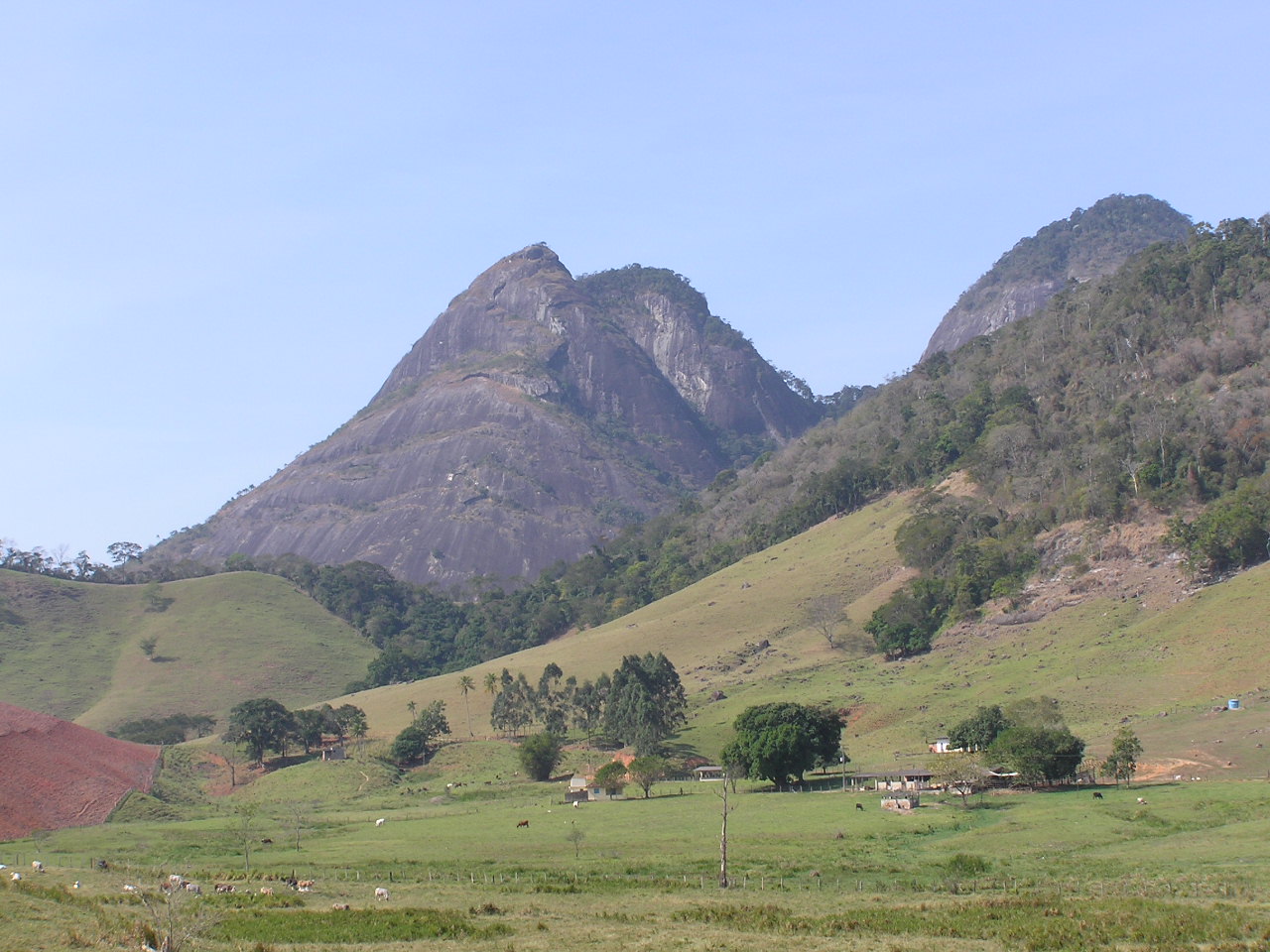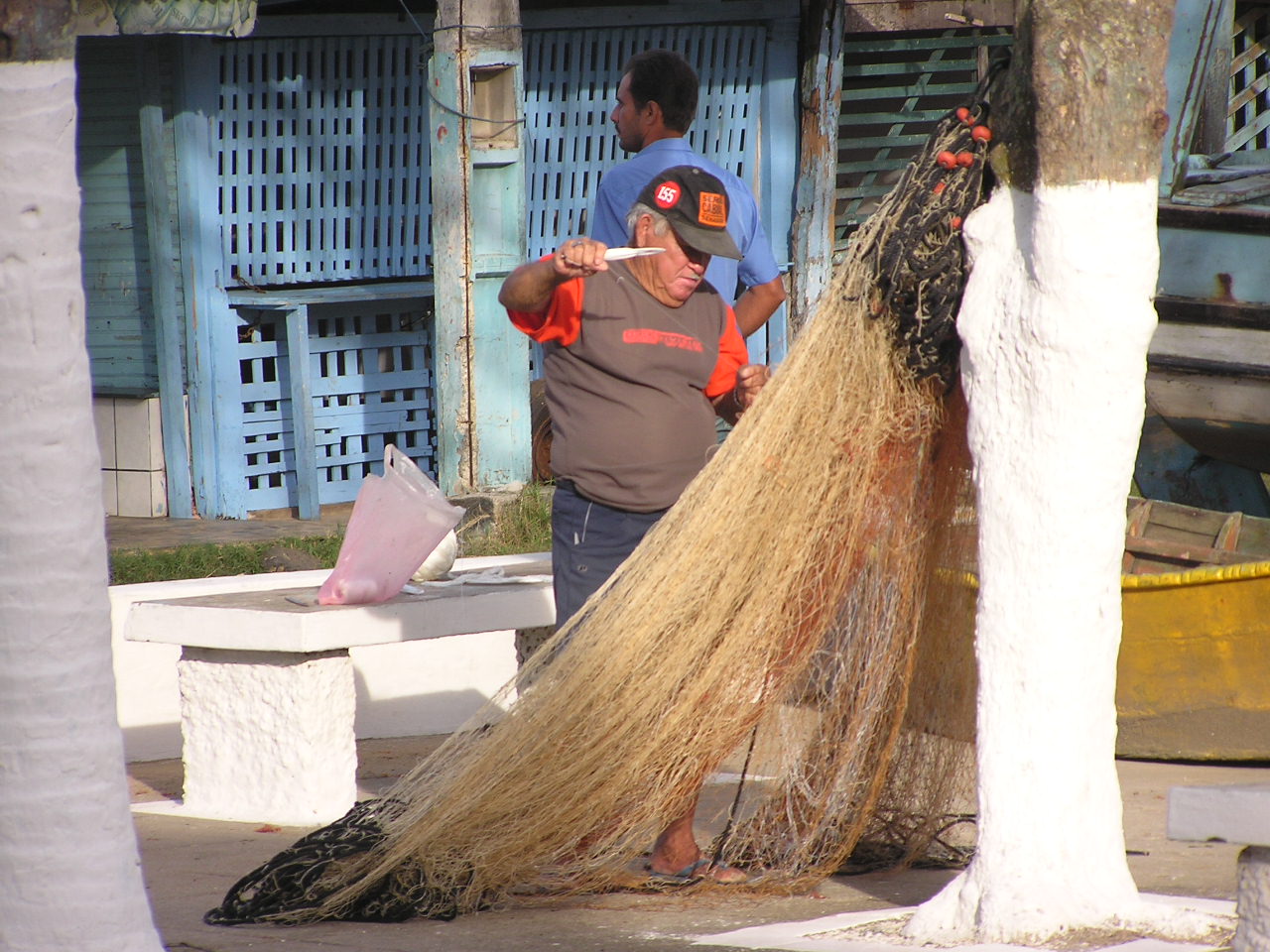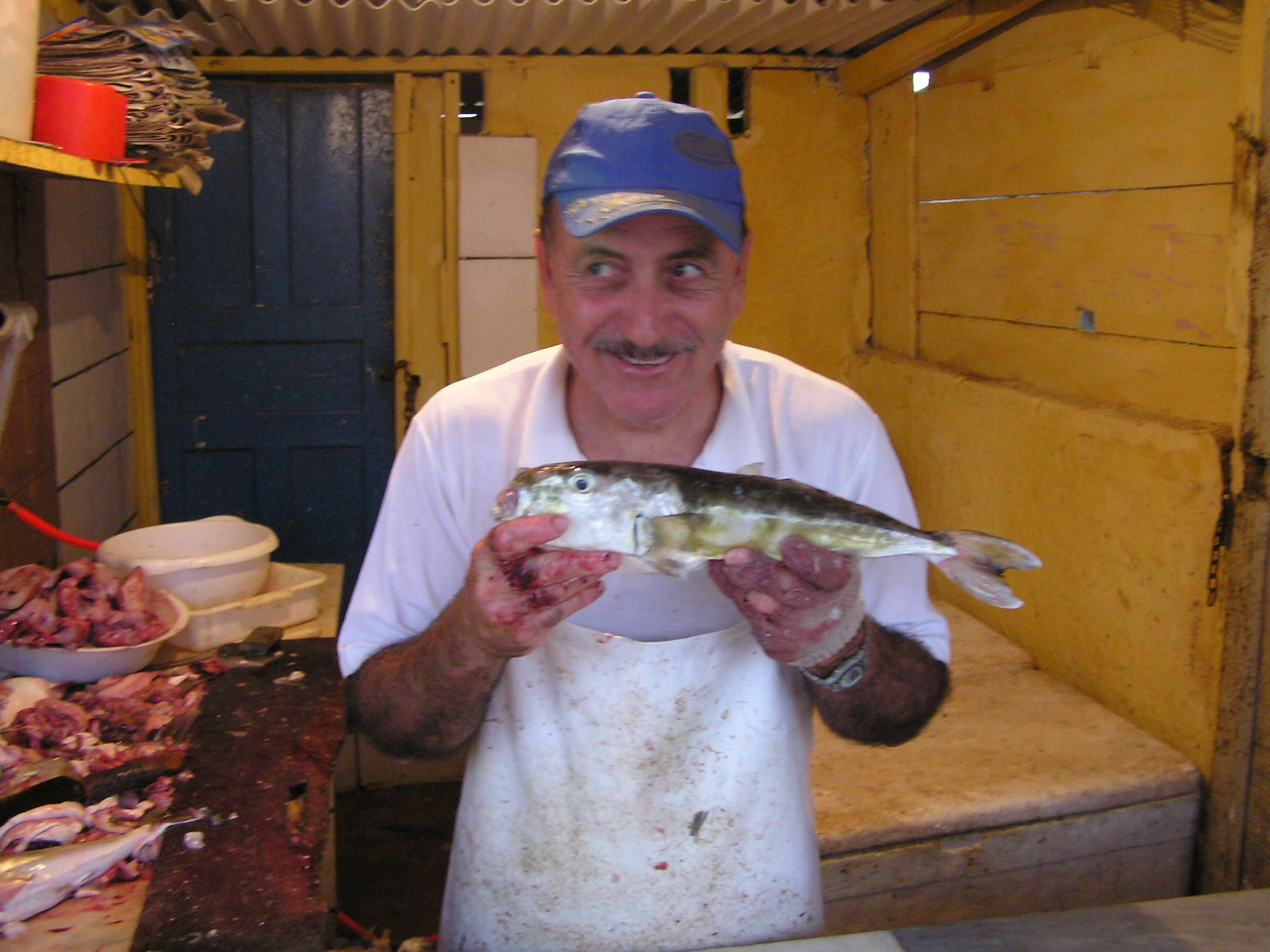(7) Brasil: North of Rio
Hoteis OK had been our home in Rio. The staff became our friends. We were their only Canadian customers...their only English speaking patrons. We were their first and only moto customers. They all extended a personal welcome when we returned. They all extended a personal goodbye when we left.
Eduardo, the bellman was studying English. He surprised me the first morning of our return with a "Good morning Robert." I clapped him on the back in congratulations. When I left, he stepped forward, extended his hand and said, "Have a good trip." He had been practising that one. I pumped his hand vigorously, fired the twin and with my best "Royal Wave" I departed.
I would miss them all, from the attendants at the parking lot to the entire staff and manager of the Hoteis OK. I especially wanted to say goodbye to Paulo but he was on days off.
Rio was simmering in the 35C heat. The smog descended like a thick fog. You could feel it. You could see it. You could taste it. It blanketed everything for a sixty mile radius. It parted as the bike moved through it and folded closed behind us.
Four lanes merged into one. The traffic snarled. The bike cooked and I baked. Finally I was through it. The humid 35 C air felt cool at 100 kmph. I moved out of Rio, across the ponte (bridge), through the suburbs and slums and out into the country. The road swung inland cutting through yet another variation on the scenery theme.
The tropical, densely treed landscape south of Rio gave way to nude hills and nude beaches further north...an unlikely combination but one much to my liking.
I missed my turn...or not. I don´t know. I didn´t see the intersection but the road swung coastal. Maybe the map was wrong. It didn´t matter. It was going in the same general direction...north.
I chased it to the sea. It followed a rige and then a valley. We crossed through sugar cane fields with their putrid stench...a cross between rotting meat and some other horrible, undefinable smell.
The heavy truck traffic ground the road into ruts. Hundreds of trucks rolled along at a snail´s pace forming a seemingly unending train to infinity. The thermometer climbed to 39 C. I stopped to refuel and cool down. The line-up plodded by as I rested. All of my hard work wasted.
I turned off of the main road and headed for the coast again, this time with purpose. Immediately I could feel the cooling effect. The thermometer plunged 5 degrees Celcius in as many kilometers.
Marataizes was my home...a small fishing village come tourist town...it had a beach. While scouring the fish stalls I met Alfredo. He was a career fisherman with a sense of humour to match.
"Where are you from," he asked.
"Canada."
A brief pause, and then he announced "I´m from Brasil."
"No way," I kibitzed. "Brasil!!"
"Yes," he nodded, and we both laughed.
The daily catch was in and he busied himself gutting and skinning fish and splitting fish heads for soup. His well worn cutting block was a testament to years of faithful service. His cutting knife, honed into a crescent moon shape told the same story.
Marataizes was a two horse town, but five of them were hitched out front of Maria Maria´s saloon and cafe. Their owners had ridden into town for a few beers, that evening.
Further north of Rio the population thinned out and the country opened up before me. Broad expanses of sugar cane fields and coffee fincas stretched to the horizon. A more basic lifestyle became evident. People had less and lived with less. There was a sense of poorness. The prosperity of the industrial south disappeared. The traffic thinned out and the roads became better.
Eucylaptis tree farming was happening on a massive scale. Ready to harvest in only seven years the perfectly straight rows of trees were easily removed. Triple trailer semis hauled them to the nearest mill where they were reduced to cellulose and then exported to Europe for further and final processing.
As is typical of countries that have neither the monetary resources nor the technology, foreign countries provide the sevice but at a high cost. Brasil gets a few jobs for planting and harvesting, a little technology and a few more jobs for the first stage of production. The raw product is then shipped overseas for secondary and tertiary processing with the higher technology and additional jobs. The high mark-up that goes with the finished product is kept by the technology provider.
Brasil gets a little, the European multi-national in this case, gets a lot. The pretense of industry is there without the real benefit. The money is in the finished product not the feedstock. A few jobs are created, a few officials at the top get kick-backs for "Inking the Deal" and little changes for the common man. The cycle of poverty, unemployment and under-education continues unabated. It cannot be broken. There is no trickle-down. It is fully and completely top-end loaded. It provides the political pretense of industry and growth without benefit, but with the evils of corruption and graft. It is a cycle that cannot be broken for that is the mantle that foreign investment works under...that is the fuel for the World Engine. There is only the spectre of aid as the raping and pillaging continues into the 21st Century.
Until the disease of corruption is removed, the concept of foreign aid and industry is wasted. Africa is living proof of that...living proof of the trillions upon trillions of dollars in aid and investment that have all but been Pissed into the Black Hole of Corruption. Heaven help us all when the raping and pillaging stops for lack to places to ruin.



